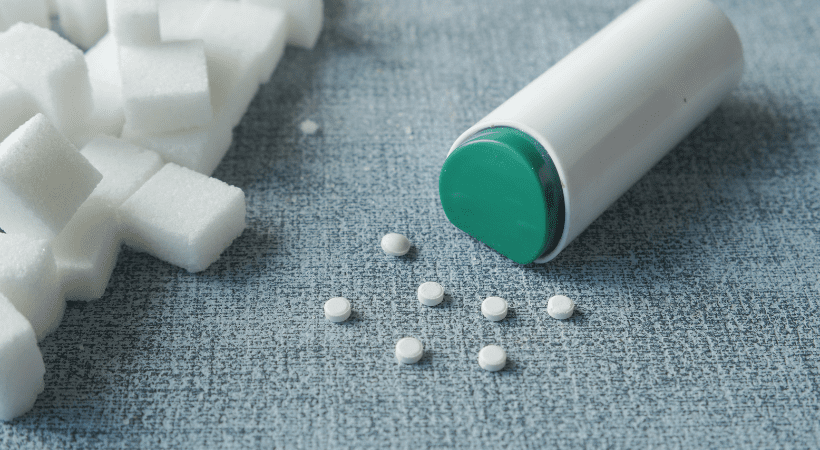Sugar and Sugar Alternatives: What industry dynamics are influencing consumer choice?
Sugar and Sugar Alternatives: What industry dynamics are influencing consumer choice?
Sugar: it’s been a topic of conversation within our industry for many years – and it doesn’t appear that this will change anytime soon. It’s undoubtedly been villainised in more recent times for the detrimental impacts that overconsumption can have (and is having) on human health. So much so, the sugar alternatives market is booming, with new and innovative approaches being introduced to our food and drink products.
But what is the sweet truth? Are attitudes towards sugar changing? and why are consumers choosing alternatives?
With extensive commercial experience having worked for global brands such as Nestle Breakfast Cereals and Coca-Cola, our Head of Regulatory, Brigid McKevith shares her thoughts below:

What are ‘Added Sugars’ and how do consumers feel about them?
‘Added Sugars’ are those introduced during processing and cooking, eaten separately, or added at the dinner table. The majority of consumers agree that we should reduce the amount we’re consuming. But sugar has been used for hundreds of years for a range of reasons including preservation, texture, and browning – and of course, for adding that sought-after sweetness.
The 2023 Tetra Pak Index demonstrated that 40% of respondents reported to be cutting back on sugar. This is a recurring trend and is reflected in the projects our food regulatory consultants are working on, such as reduced sugar chocolate to unique processing methods – It’s clear that some brands are seeking to reduce (or completely remove) sugar from their products.
What themes are influencing consumer choice between sugar and sweeteners and what does this mean for product innovation?
Innovation in the sugar alternatives sphere is thriving. Some consumers are seeking products with reduced sugar content without sacrificing taste, while manufacturers try to meet sugar reduction targets set either internally or externally – meaning that brands are increasingly relying on sugar alternatives, such as sweeteners, to satisfy all.
Some of the core themes currently influencing consumer choice include:
Beliefs, motivation and understanding:
All consumers are different. Not everyone has the same beliefs, motivations or understandings of sugars and sweeteners.
For example:
- People living with diabetes will actively look for foods with sweeteners or use them to prepare low or no sugar meals, snacks and drinks to assist in managing blood sugar levels.
- Those who calorie count may choose low or no sugar items as part of a healthy and balanced diet.
- Consumers who are less worried about dental health and weight or who are looking for less processed foods may prefer sugar to sweeteners.
Just as sugar can often be demonised, some consumers are concerned about the stigmas surrounding sugar alternatives. There is a lack of universal understanding, leading to general confusion and a lack of trust. In fact, some consumers even admitted to not knowing just how tightly regulated sweeteners are, and how often they’re reviewed by food safety organisations.
Category-specific acceptance
Consumer views on sugar reduction might be very category-specific. For example, in 2020 IGD published that only 3% of those questioned would consider a reduced-sugar confectionery item. Rather than sacrificing the product altogether, 15% would rather opt for a smaller portion and 23% prefer to eat it less frequently.
That said, there’s a general (and growing) acceptability of reduced sugar or sugar-free soft drinks in the UK. This is potentially due, in part, to the work by the soft drink manufacturers and the introduction of the Soft Drinks Industry Levy introduced in 2018.

Sustainability
There’s a growing awareness and interest worldwide in sustainability. Consumers are seeking products that are not only good for their health but are also kinder to the environment. And it’s expected that this will become an even greater motivator as the years go by.
Stevia is one of the most popular sugar alternatives currently available on the market. In 2022, The International Journal of Life Cycle Assessment analysed steviol glycosides from stevia leaves grown in Europe and found a lower impact on global warming, land use and most other impact categories, in comparison to sugar.
Therefore, eco-conscious consumers might be swayed to switch to such sweeteners due to their significant sustainability credentials.
As we enter 2024, sugar reduction is without a doubt a key consideration and focus for manufacturers, retailers and consumers. Health and wellbeing are no longer the sole driving factor – instead, personal lifestyle choices, as well as sustainability credentials are playing a significant role in the changing attitudes and spending habits of consumers.
Having a range of products available on the market is vital to ensure manufacturers can meet the evolving demands of everyone, providing them with a choice at the checkout. Whether knowingly or not – almost all consumers are already consuming a mixture of both sugar and sweeteners.
Whatever approach a company takes to sugar reduction, food labelling compliance is a critical part of effectively formulating products and communicating this to consumers so they can make choices with confidence.
If you have questions about the use of sugar alternatives or claims to communicate your efforts to reduce sugar in your products, get in touch with Ashbury’s regulatory consultants today.
Next reads
What’s Next for Food & Drink? Our Experts’ Predictions for 2026
The Peanut Diaries: School and Social Occasions
The Peanut Diaries: Navigating Social Events and Celebrations with Food Allergies
The Peanut Diaries: A Parent’s Journey to Uncovering their Child’s Allergy
Keep up to date with our latest insights
Subscribe to our mailing list to stay in touch with the latest news, insights and updates from Ashbury





